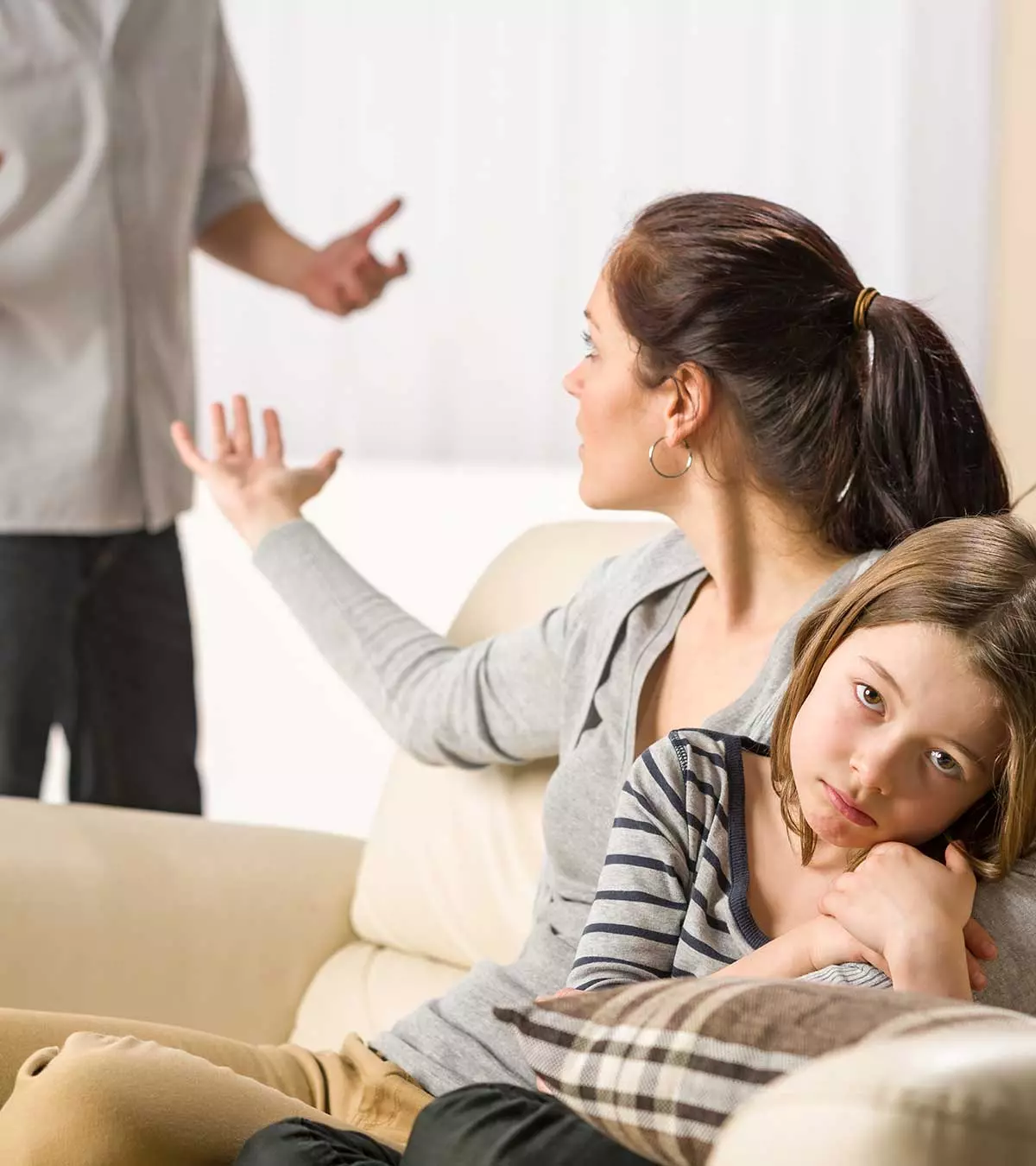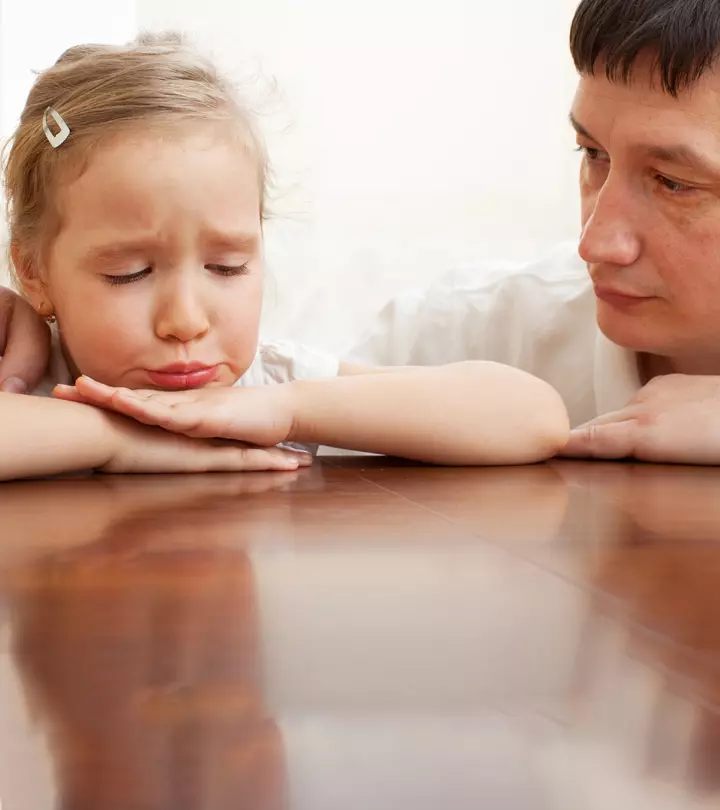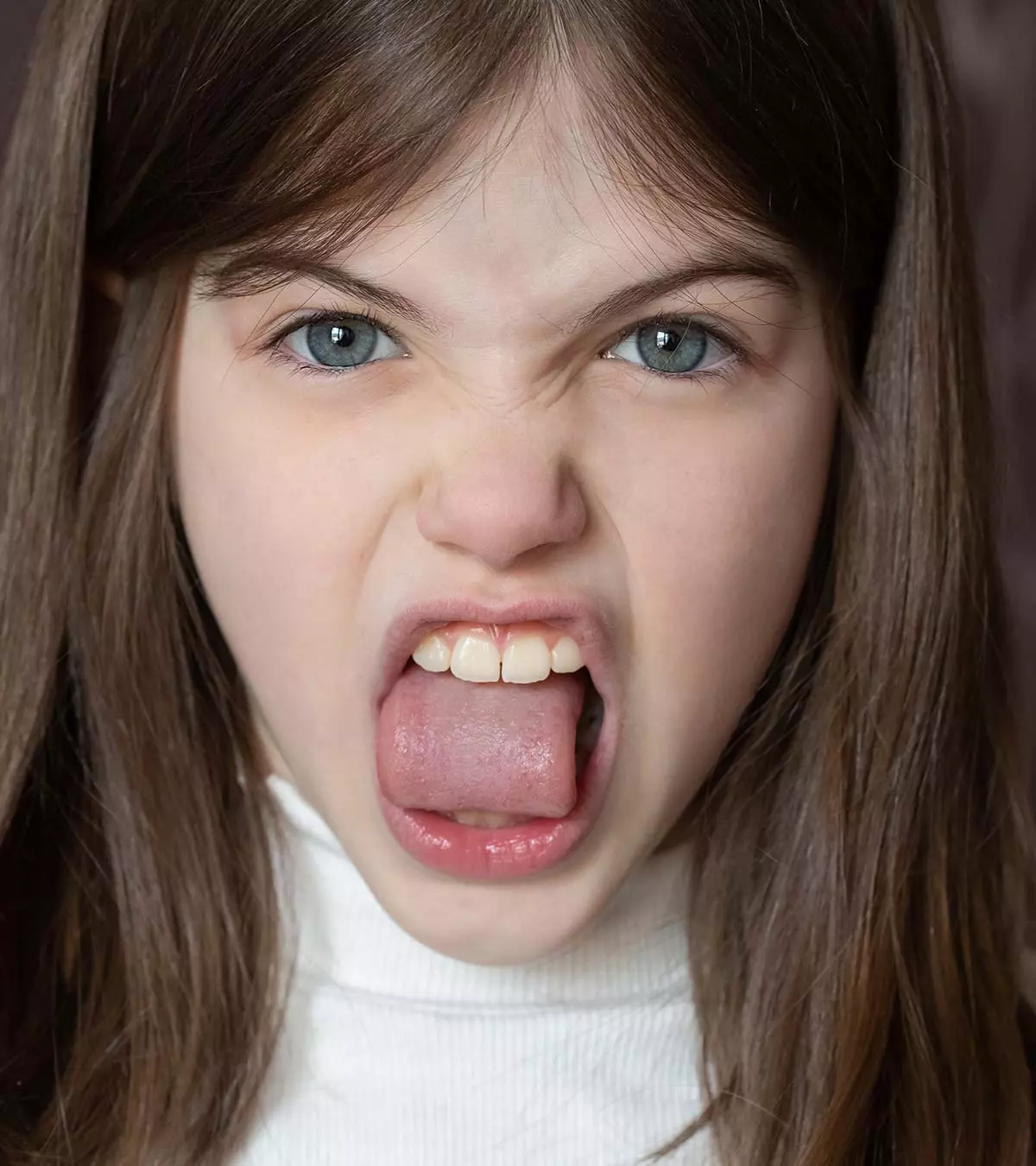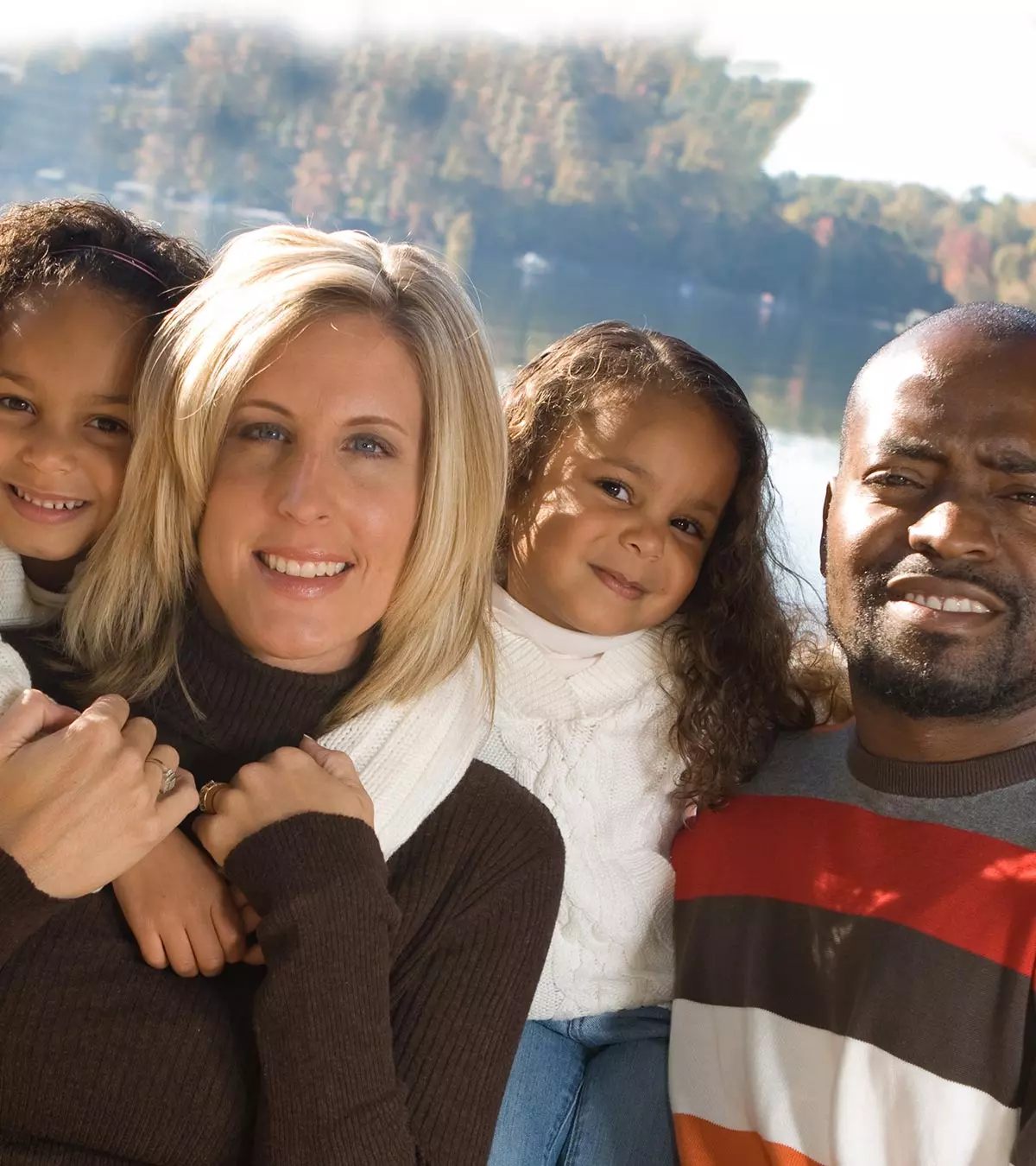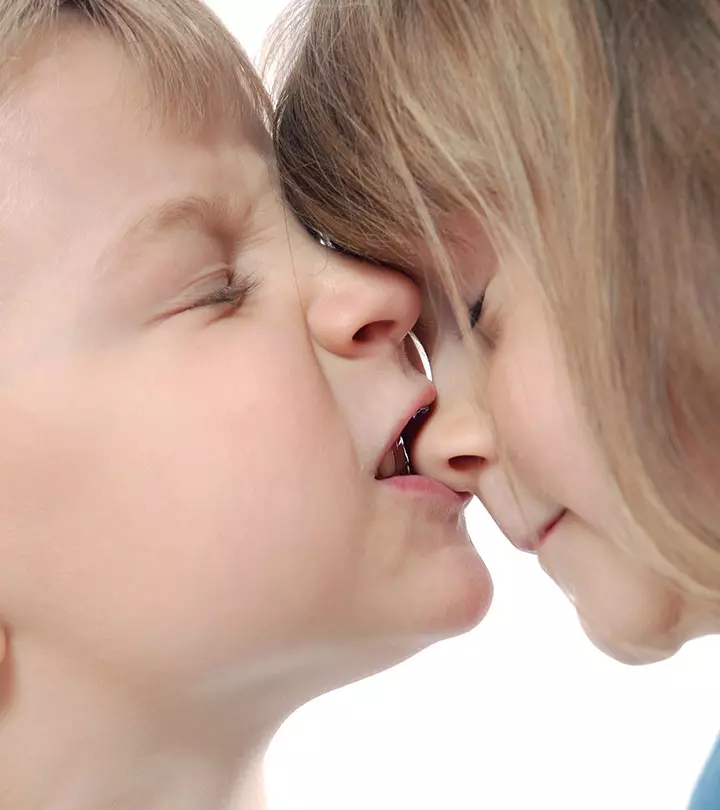
Image: iStock
A child biting someone could be a typical stage of development as they cannot express their actions or feelings through words. However, biting can result in severe physical harm to the bitten person. It also leads to strained relationships and upsets other children, parents, and adults. Therefore, it is important to address biting in young children. Read on to understand why children bite and how to respond to their behavior.

Key Pointers
- Biting is a developmentally appropriate behavior often seen in younger children for several reasons.
- It could be a form of exploration for some as they are impulsive or lack self-control.
- Saying a firm ‘no’ to their behavior or creating a positive learning environment could help break the habit.
Why Do Kids Bite?
Biting is common in young children but could worry the parents, especially when this child’s behavior continues for a long time.
Also, it is not an acceptable way of expression as the child reaches toddlerhood around three to five years of age. Some possible reasons for the child’s biting behavior are (1) (2).
- To ease the pain due to teething
- To express their frustration, aggression, and other feelings they can’t communicate
- Out of curiosity about the consequences, especially when playing with other children
- When they are hungry, sleepy, or bored
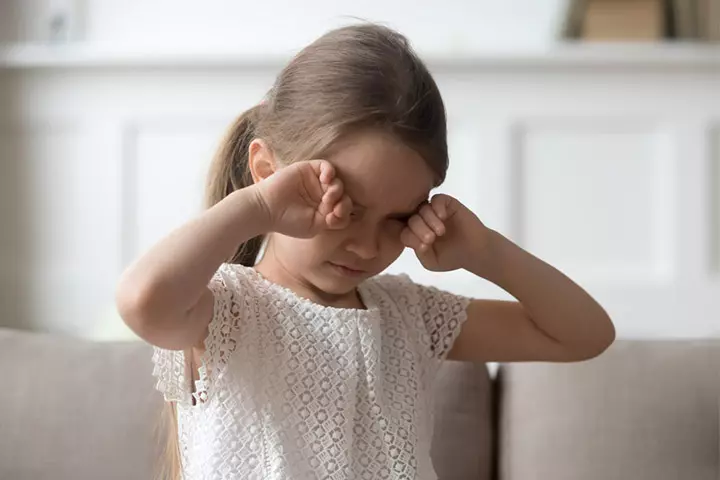
- To enjoy or experience the physical sensation of biting (oral stimulation)
- To defend themselves in particular situations
- To take control of a situation and be in power among a group
- It is attention-seeking behavior.
- Jealousy, sibling rivalry, or power struggle at home may also lead children to bite.
The above reasons make biting understandable. However, it is still important to redirect biting toward a more acceptable behavior.
How To Stop Children From Biting?
To prevent biting in children, help them stay distracted and occupied physically and mentally.
You can teach your children the following appropriate ways to communicate their needs and emotions (3) (4).
- If your child is at the teething phase, they naturally become more agitated and feel the need to bite onto something. In such situations, ensure to provide a teething ring or something spongy that they can bite into to avoid their teeth from biting deep into someone’s arm.

- When your child is in an environment that is overstimulating, provide them with a teething ring or an appropriate object to bite onto. Some children may dislike loud music, crowds, or even eating and napping during the usual time, which may cause immense frustration, and they bite.
Marcela Collier, a mother of twins, shares her experience with one of her children’s biting phase. She says, “I remember the first time that one of my twins bit me. We were at church; people looked at me, kind of waiting for what I was going to do.
“After that church incident, I started paying attention to when this behavior was triggered, and I found something: I found that every time we were in an indoor closed space with a lot of people, one of my twins was very agitated, and many times he ended up biting me or biting others. So I knew his trigger was being in crowded spaces (i).”
- When you can, avoid shuffling up the child’s eating schedule as it may leave them hungry and lead to biting.
- Encourage your children to use words as they grow. For instance, if your child is not feeling alright, encourage them to tell you how they are feeling. This way, their communication and language skills improve.
- Using an external source such as a punching bag is an excellent way to relieve the child’s rage. Ask them to punch it, pinch it, or even bite into it if they feel like it and let out all the anger. Physically working on relieving their stress using a non-living and soft thing is better than leaving them irritable until they bite someone.
- Spend time with your child. You can play their favorite game, read a story, take them to the park, or try something new together.
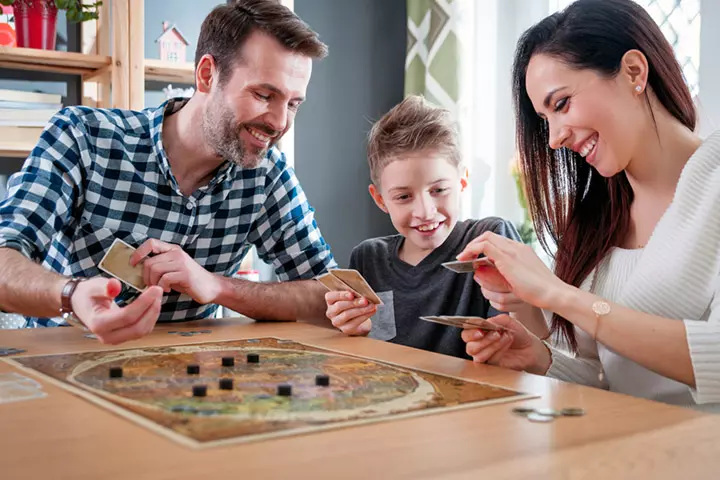
- In some circumstances, a change in routine – big or small – may lead to an onset of biting or an increase in biting. It could be a change–moving to a new locality, welcoming a daily routine. Prepare your child for the changes to come as much as possible. And, offer additional comfort during the changes.
- If your child has already bitten someone, be firm and tell them it is not an acceptable action and let them know the consequences.
- Punishing the child by biting them back or hitting them is ineffective and potentially damaging. Young children learn most traits by imitating the adults, and if you do the same, the child may be under the impression that what they did is also correct.
- If no other means of solving the issue works out, observe your child for a few days closely. You may have to keep continuing until you find confidence in the child that they won’t bite anyone. If you feel that your child’s biting is not improving with your reinforcing positive behavior, take them to a doctor.
Frequently Asked Questions
1. Why does my child bite when excited?
Overexcitement may cause children to bite because they cannot manage or express their feelings well at a young age. Thus, biting is a form of emotional release when they lack the language to articulate their feelings. Teaching your child better nonverbal expressions of excitement is important to stop this habit (5).
2. Is biting a symptom of autism?
Biting may be a symptom of autism. It is a part of stimming behaviors, which children with autism use to cope with anxiety. Biting may also be related to communication difficulties in these children (6).
3. At what age do children typically stop biting?
As children grow older, they stop biting. Most children stop biting by the age 3 to 3.5 years (9).
4. Is biting a common problem in preschool and daycare settings?
Biting is relatively uncommon amongst preschoolers; however, there have been cases where children have reported biting at preschools and daycare centers. This mostly happens because a child is upset, confused, or afraid. And biting seems like the only way to deal with frustration or fear. Some children may even bite to get attention (10).
Generally speaking, children bite because they have few other ways of expressing themselves. Addressing bad habits in kids, such as biting, requires patience and understanding, as these behaviors often stem from frustration or a lack of communication skills. Helping them learn other ways to communicate their needs and feelings is the best way to curb the behavior of inappropriate biting. Refrain from using any punishments and seek the help of a counselor if the action continues.
Infographic: Ways To Stop Children From Biting
Regardless of the underlying cause, from teething to expressing anger and asking for attention, biting behavior in children can be a cause for concern to parents. So, tackling this behavior at an early stage is important. The infographic below presents a few strategies to help you to make your child stop biting.
Some thing wrong with infographic shortcode. please verify shortcode syntaxIllustration: Why Do Children Bite And How To Stop Them From Biting?
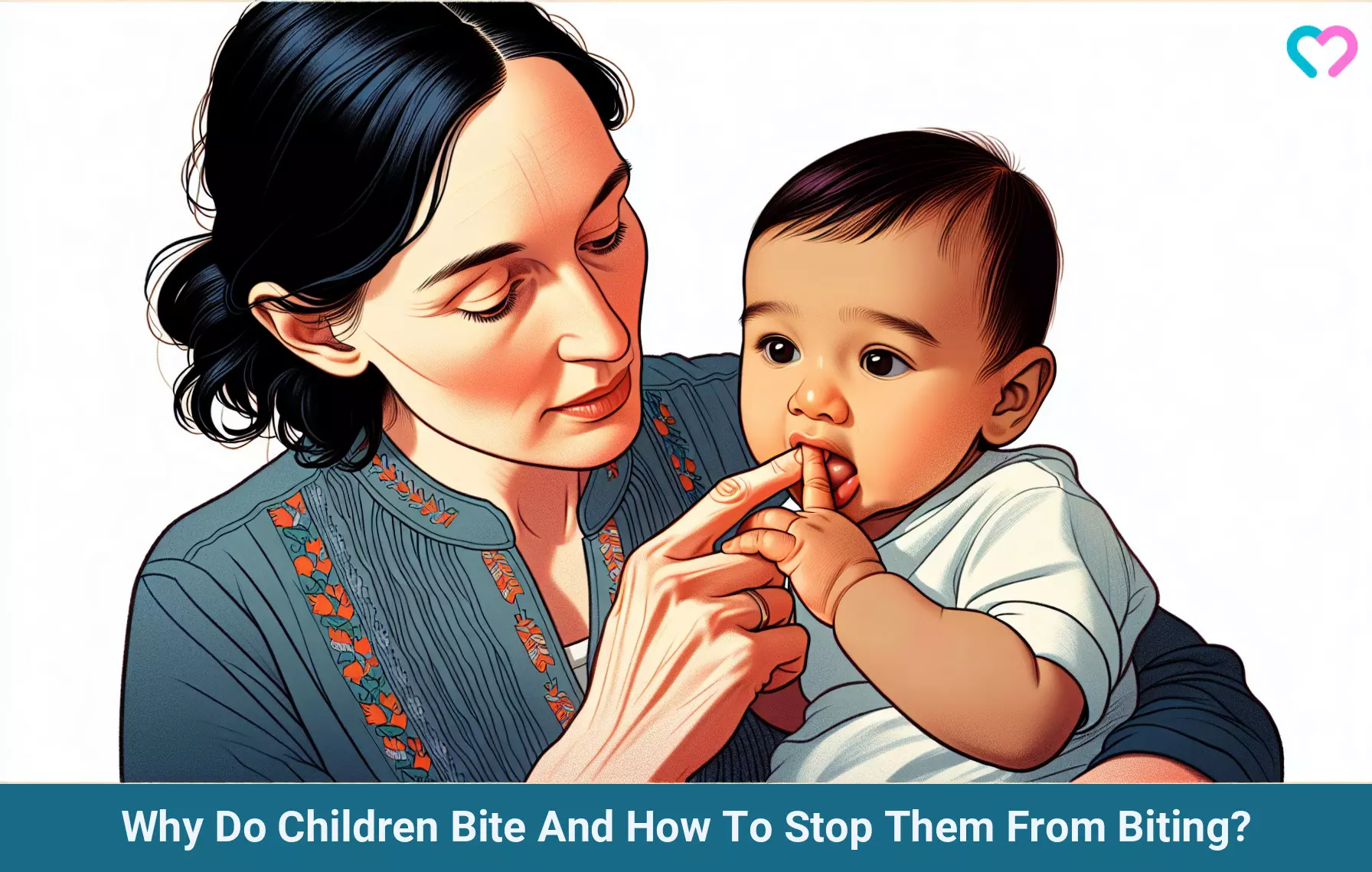
Image: Stable Diffusion/MomJunction Design Team
Children bite for many reasons, such as frustration, attention-seeking, or exploring their environment. Let’s explore why children bite and how to prevent it.
Personal Experience: Source
MomJunction articles include first-hand experiences to provide you with better insights through real-life narratives. Here are the sources of personal accounts referenced in this article.
i. The 5 step process to stop toddler biting behavior. https://www.youtube.com/watch?v=O7OmoaSrfNUReferences
- Why Children Bite.
https://www.stanfordchildrens.org/en/topic/default?id=why-children-bite-90-P02860 - Biting Behavior in Children: Normal or Not?
https://livesmartohio.osu.edu/family-and-relationships/worthington-56osu-edu/biting-behavior-in-children-normal-or-not/ - Biting.
https://www.urmc.rochester.edu/encyclopedia/content.aspx?contenttypeid=90&contentid=P02180 - Responding to Your Child’s Bite.
http://csefel.vanderbilt.edu/documents/biting-parenting_tool.pdf - Children and biting.
https://www.pregnancybirthbaby.org.au/children-and-biting - Ruziana Masiran; (2018); Stimming behaviour in a 4-year-old girl with autism spectrum disorder.
https://www.ncbi.nlm.nih.gov/pmc/articles/PMC5847983/#:~:text=Biting%20or%20chewing%20hard%20objectsestablished%20cause%20for%20stimming%20behaviours. - Why Children Bite.
https://www.texaschildrens.org/content/conditions/why-children-bite - Biting.
https://kidshealth.org/en/parents/stop-biting.html#:~:text=Babies%20and%20toddlers%20bite%20for - Toddler Biting: Finding the Right Response.
https://www.zerotothree.org/resource/toddler-biting-finding-the-right-response/ - Understanding and Responding to Children Who Bite.
https://www.naeyc.org/our-work/families/understanding-and-responding-children-who-bite
Community Experiences
Join the conversation and become a part of our nurturing community! Share your stories, experiences, and insights to connect with fellow parents.
Read full bio of Dr. Caroline Hexdall
Read full bio of Apoorva K
Read full bio of Harshita Makvana
Read full bio of Vidya Tadapatri








